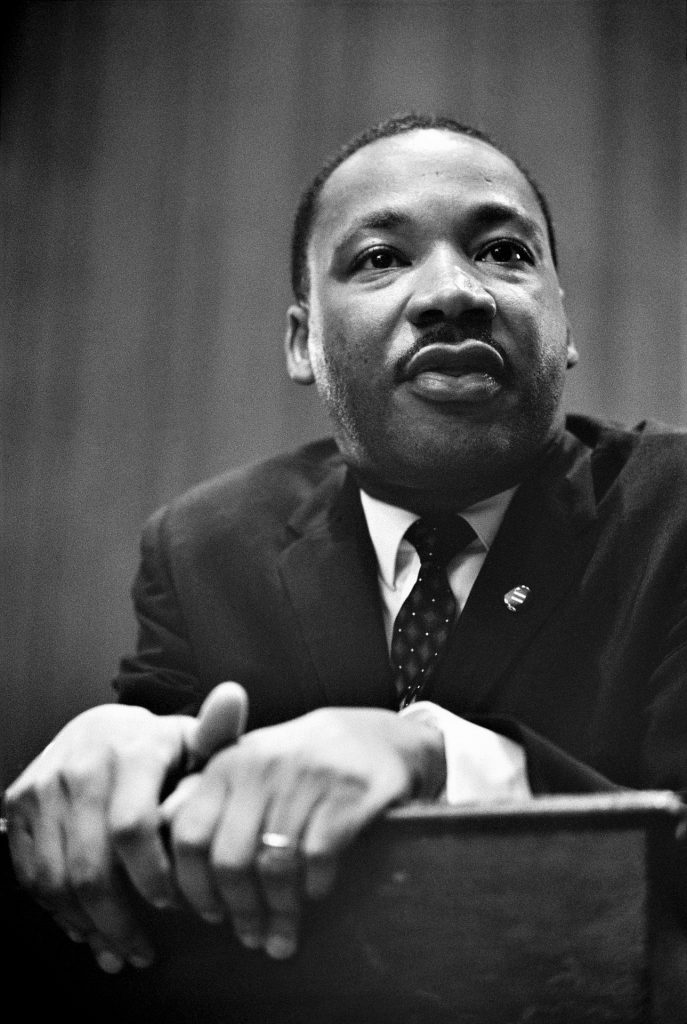Dr. King and the English Language Posted by Gary Locke on Jan 17, 2019 in English Language
The United States celebrates the birthday of Dr. Martin Luther King Jr. on the third Monday of January. We honor him as a powerful civil rights leader, for his commitment to nonviolence, and for his eloquence as an orator. There are few Americans in history who can compare with Dr. King as a speaker and writer of political prose. His speeches are justifiably regarded as among the most important, and effective, in modern history.
Dr. King had a genius for rhetoric, the ability to write and speak persuasively. He could, as the saying goes, work a room. Through his combined understanding of language and people, Dr. King managed to find the right words to move, motivate, and inspire Americans from all corners of society.
He was, we must remember, a theologian and a minister. Preaching to his brethren, first in Montgomery, Alabama and later alongside his father at Ebenezer Baptist Church in Atlanta, Dr. King mastered the skill of enthralling an audience. His speeches, therefore, had the lyrical cadence of a sermon. He would build to a forceful conclusion as a composer would sweep musical notes to a thundering crescendo.
In one of his first great speeches on behalf of civil rights Dr. King gradually built his case for voting rights for African Americans until finally bringing the audience to its feet with the rhythmically repeated call to “Give us the ballot!” It would be perfectly correct to regard most, if not all of Dr. King’s speeches as historically important sermons.
Through his work as a social crusader, he traveled with a diverse mix of people from all types of backgrounds. This gave Dr. King the ability to be persuasive across a wide spectrum of society. As a black man in the south, he could command respect within the members of the Southern Christian Leadership Conference and the NAACP (National Association for the Advancement of Colored People). But he could change his speech pattern slightly to speak with political leaders like Lyndon Johnson, or to deliver a speech accepting his Nobel Peace Prize before an almost entirely white audience in Oslo, Norway.
Martin Luther King Jr. had a grasp of persuasive rhetoric like few in history. He peppered his speeches with metaphors and allusions that he knew his audience could relate to. This skill added emphasis to whatever point he was trying to make. He also, as earlier stated, used repetition to great effect. In the Nobel speech, he drew attention to the plight of all who fought for civil rights in America with the recurring phrase, “I am mindful…” It was a way to convince those in attendance that the civil rights movement was far from over just because he was awarded that prize.
It is this blending of rhetorical techniques which makes his speeches such a joy to read. Yes, they were written to be spoken, and his oratorical skills are amazing, but reading them brings you respect for his stunning use of the English language. Biblical references merge seamlessly with poetry, historical allegory, and allusions to everyday life.
Remarkably, more than 50 years after his death, the speeches of Dr. King seem very contemporary. This is largely due to the themes and issues addressed in them still, unfortunately, remaining in the news. But we also see that his example as an orator is studied and emulated by political and social crusaders today. Barack Obama is a perfect example of someone who put many of Dr. King’s methods into his speeches.
Take a moment now to listen to a master of the English language. Consider all the ways that he stirs your passions and draws you into his thoughts.

Build vocabulary, practice pronunciation, and more with Transparent Language Online. Available anytime, anywhere, on any device.





Comments:
Lady Blanco Calderón:
LOVE ENGLISH